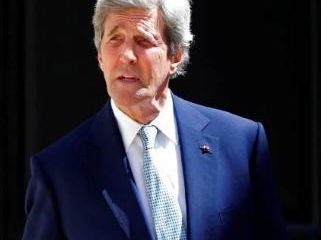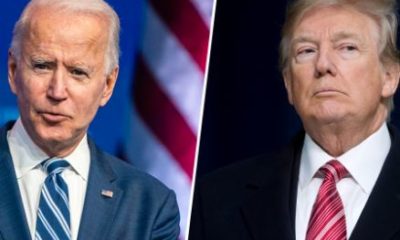World
Relevance of Mahatma to peace, sustainable development highlighted at UN

United Nations: Mahatma Gandhi’s undying inspiration for today’s twin priorities of international peace and sustainable development was hailed Friday as the UN observed Gandhi Jayanthi as International Day of Non-Violence.
Issuing a call to “renew our commitment to non-violence and lives of dignity for all,” Secretary-General Ban Ki-moon said, “Today, at a time of escalating conflicts, rising extremism, massive displacement and rapidly growing humanitarian need, Mahatma Gandhi’s dedication to non-violence remains an example for us all.”
“The new 2030 Agenda for Sustainable Development can also point the way towards reducing violence, promoting harmony between people and planet, and making the world safer for all,” Ban said.
Ban recalled his visit to the Sabarmati Ashram and said that Gandhi’s saying he saw there, “If blood is to be shed, let it be our own,” impressed him. “Gandhi was calling on people to refuse to kill – instead, to be willing to die to save others.”
Ban unveiled a portrait of Gandhi presented to the UN by India. The painter of the portrait, Raghubir Dayal Parikh, was present at the ceremony. The celebrations featured a program combining a video of Gandhi’s saying and key moments in his life with a live voice presentations and a performance of a cello piece specially composed by Michael Fitzpatrick.
External Affairs Minister Sushma Swaraj had been scheduled to deliver the presidential address. But Ban said that she “had to return home owing to a family emergency.” He added, “Our thoughts are with her.”
With the just concluded world sustainable development having adopted an ambitious agenda to end poverty and protect the environment, Indian Foreign Secretary S. Jaishankar spoke of Gandhi’s relevance the mission calling him “the original sustainable development guru.”
“Appropriately India chose to announce its INDC (Intended Nationally Determined Contributions or commitment on lowering greenhouse gas emissions) on Mahatma Gandhi’s birthday,” he said in his presidential addres. “This was to underline our moral commitment to sustainable development.”
Jaishankar said Mahatma Gandhi’s three guiding principles – -‘ahimsa'(non-violence), ‘satyagraha’ (force born of truth) and ‘sarvodaya’ (uplift of all) — – continue to provide the world with approaches to address a range of complex challenges, many of which may not have even existed during his lifetime.
“In our times, we have seen the growth of religious bigotry and intolerance,”he said. “In many cases, this has directly fueled support and sponsorship of terrorism.”
“Unfortunately, the world has often looked away when terrorists have attacked innocents, assuming that it is not their problem,” he added. “As a believer in the indivisibility of the world and the importance of moral courage, Gandhiji would ask us all to stand up and be counted.”
General Assembly President Mogen Lykketoft quoted Gandhi’s works, “Non-violence is the greatest force at the disposal of mankind. It is mightier than the mightiest weapon of destruction devised by the ingenuity of man.”
Lykketoft said, “These words resonate with the very principles of the UN Charter; with the UN’s promotion of peaceful settlements to disputes, and the primacy of reaching solutions through diplomacy and other peaceful means.”
During the current General Assembly session there are opportunities for Bringing Gandhi’s vision closer to reality, he said. The new sustainable development goals adopted a week ago and the momentum building around climate change show that the universality that Gandhi preached was happening, he added.
“Let us work together for the betterment of our planet and our people” inspired by Gandhi, he said.
Bangladesh Finance Minister Abul Maal Abdul Muhith, a self-described Gandhian, said that even though his father was a Muslim League leader, for him as a youth Gandhi had his own appeal because “he cared for everybody.”
He recalled that a 14-year-old he wept as he went around Sylhet conveying the news of Gandhi’s assassination and the condolence meeting for him.
Gandhi led the khilafat movement across India protesting the dismantling of the caliphate in Turkey, Muhith said. But when it turned violent and police were attacked, he called it off because it went against his principle of non-violence.
In today’s world, Gandhi may not have liked the proliferation of technology and the lifestyles, but he would have been impressed by the concern for peace, he said.
South Africa’s Permanent Representative Kinglsley Mamabolo said that Gandhi’s influence was felt in his nation’s constitution that emphasised unversality of its people. India and South Africa are working together for world peace, he said. “We continue to be connected across the ocean.”
Belarus Deputy Foreign Minister Aleksandr Mikhnevich said that Gandhi’s message resonated around the world in the quest for peace. He noted that his president, Alexander Lukashenko, had in his address this week to the General Assembly had cited Gandhi’s saying, “An eye for an eye only ends up making the whole world blind,” as warning to nations and as a call for peaceful resolution of disputes.
“Let us build our relationships on the basis of peace,” Mikhnevich said.
Kazakhstan’s Permanent Representative Kairat Abdrakhmanov said, “We need to start a global non-violence movement.” Non-violence is a “pillar of the future of humanity,” he added.
Japan’s permanent Representative Motohide Yoshikawa said the life and message of Gandhi should be spread among the younger people. His teachings should be spread beyond India and South Africa, he added.
From Latin America, Brazil’s Permanent Representative Antonio de Aguiar Patriota said that Gandhi was a guide to the world. And Nicaragua’s Permanent Representative Maria Rubiales de Chamorro said that Miguel d’Escoto Brockmann, a Catholic priest who was her nation’s foreign minister and a president of the General Assembly was a disciple of Gandhi.
National
Foodman Vishal Singh Honored for Hunger Free World Mission in Bangkok

Lucknow: Vishal Singh, a renowned social worker from Lucknow, also known as Foodman, has once again made India proud. He was honored by the Happy Hands Gloves Cooperative Limited Company in Korathai, Thailand, for his work with the Hunger Free World Mission.
The Hunger Free World Mission’s meeting was held in Korathai, Thailand, under Vishal Singh’s leadership. Representatives from several countries, including Mr. Raja Dwivedi (Managing Director of Happy Hands Gloves Limited), Thailand Coordinator Mr. Raja Mishra, and member Mr. Varun Singh, attended the event.

Under Vishal Singh’s leadership, the attendees took a pledge to work together toward creating a hunger-free world.
Speaking on the occasion, Vishal Singh explained that the main goal of the Hunger Free World Mission is social participation. He said the mission is not just about feeding people but also about meeting other basic needs of those who are struggling. The mission focuses on helping families of terminally ill patients in hospitals by providing food and shelter. It also works to fulfill essential needs like education, jobs, and care for the elderly.
For the last 16 years, the Vijay Sri Foundation has been providing free services, benefiting thousands of people. Vishal Singh highlighted that the mission aims to gain global recognition like other organizations such as WHO, WWF, and Red Cross, which work for social causes.
During this meeting, Vishal Singh was appointed as the Chairman of the Hunger Free World Mission by representatives from various countries. They also discussed holding regular meetings in different countries to push the mission forward.
Business tycoon Dr. Abhishek Verma has also supported this humanitarian mission, vowing to promote the idea of “Seva Parmo Dharma” (Service is the highest duty) worldwide. Vishal Singh praised him, stating that people like Dr .Abhishek Verma inspire others to work for the betterment of society.
Recently, Romania’s Ambassador, Mr . Daniela Sezonov Ţane, invited Vishal Singh to the Romanian Embassy in Delhi, where they discussed the mission in detail. Impressed by his humanitarian work, she honored Vishal Singh and invited him to Romania to take the mission forward .
Food man Vishal Singh has been serving the people of India for the past 16 years. Through the Vijay Sri Foundation, he provides free meals to cancer patients & their families ,shelter, and education for women & children along with running free old-age homes in Lucknow.
In addition to his humanitarian work, Vishal Singh also addresses issues like crime and corruption through his role as Chairman of Seva Path Media and Managing Director of Vijay Sri Foundation.

During the COVID-19 pandemic, Vishal Singh and his team worked tirelessly to provide food and help to the needy, including starving children, elderly citizens, and pregnant women. Despite contracting the virus himself, he continued to assist others after his recovery. He even created a life-saving oxygen regulator using household items, which was praised by doctors both in India and abroad.
In his address at the meeting, Vishal Singh spoke about his mission to create a hunger-free world. He pointed out that India’s large population, along with issues like unemployment and poverty, has caused the country to fall on the Hunger Index. He urged people to contribute just one handful of grains daily to help create a hunger-free world.
He concluded by saying that through social participation, we can empower the people around us, meet their basic needs, and work together to build a stronger, more prosperous, and developed society.























